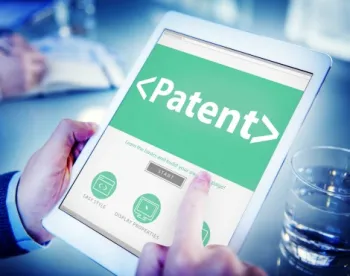The Federal Circuit recently issued a precedential decision in Stone Basket Innovations, LLC v. Cook Medical LLC, No. 2017-2330 that has important ramifications for litigants seeking attorneys’ fees under Section 285 of the Patent Act.
Section 285 authorizes a court to award reasonable attorneys’ fees to the prevailing party in “exceptional cases.” In Octane Fitness, LLC v. ICON Health & Fitness, Inc., 134 S. Ct. 1749 (2014), the Supreme Court defined an “exceptional case” as one that “stands out from others with respect to the substantive strength of a party’s litigating position . . . or the unreasonable manner in which the case was litigated.” Under Highmark Inc. v. Allcare Health Mgmt. Sys., Inc., 134 S. Ct. 1744 (2014), district courts are to apply a “totality of the circumstances” test to determine whether a case is exceptional.
Stone Basket’s case started life as a run-of-the-mill patent infringement suit filed in the US District Court for the Eastern District of Texas in April 2015. Defendant Cook Medical served its invalidity contentions in October 2015 and subsequently deposed the inventor in January 2016. The inventor testified that he “realize[d] there [wa]s nothing novel about” the “sheath movement element” added to the claim to overcome an examiner rejection. Cook Medical then petitioned the US Patent and Trademark Office for inter partes review in March 2016. Shortly thereafter, the court transferred the case to the US District Court for the Southern District of Indiana. The parties filed a joint motion to stay the proceedings in April 2016, which the district court granted.
The PTO instituted an IPR on all claims of the asserted patent in September 2016, which prompted one of Stone Basket’s managing members to offer Cook Medical a license in exchange for $150,000. Negotiations broke down and in December 2016, Stone Basket filed a motion requesting adverse judgment in the IPR proceeding. The PTO granted the adverse judgment and cancelled all claims.
Following cancellation, the district court granted Stone Basket’s motion to dismiss the infringement suit with prejudice. Cook Medical subsequently sought attorneys’ fees. The district court denied the fee application because it determined the case was not “exceptional” under 35 USC § 285.
Addressing the issue of the substantive strength of Stone Basket’s non-prevailing litigation position, the Federal Circuit found that the district court did not abuse its discretion in finding that the evidence Cook Medical submitted—invalidity contentions and inventor testimony—did not, taken alone or in combination, warrant a finding of exceptionality.
Describing Cook Medical’s invalidity contentions as “inconsistent and unilluminating,” the Federal Circuit observed that the invalidity contentions failed to provide “clear notice” of invalidity. While Cook Medical focused on the obviousness of the asserted patent over a prior art reference (the “Leslie reference”), the Federal Circuit explained that the contentions fell short of notifying Stone Basket how the Leslie reference renders the asserted patent obvious or even that Stone Basket should conduct a focused investigation on whether the Leslie reference, in particular, renders the asserted patent obvious. The Leslie reference Stone Basket championed, moreover, was listed on the face of the patent and Stone Basket failed to overcome the presumption that the examiner considered the reference. As such, the Federal Circuit explained that Stone Basket, having been issued a valid patent, was entitled to a presumption of good faith in asserting its patent rights against Cook Medical.
The Federal Circuit found equally unavailing Cook Medical’s reliance on the inventor testimony concerning the novelty of a particular claim element. Citing its precedent, the Federal Circuit reiterated that a post-issuance statement regarding a single element of a claimed invention does not establish invalidity because the court must consider the subject matter sought to be patented taken as a whole. Again noting that a duly issued patent is presumed valid, the Federal Circuit explained that it was not “necessarily unreasonable” for Stone Basket to continue relying on the presumptive validity despite the inventor’s testimony.
Cook Medical further faulted the district court for considering its litigation conduct when declining to find the case exceptional, arguing that the district court cited no authority for the proposition that the tactical decisions made by the prevailing party are relevant to assessing the substantive strength of the non-prevailing party’s litigation positions. The Federal Circuit rejected the argument, noting post-Octane precedent that the conduct of all parties—including the movant—is a relevant factor for district courts to consider under Octane’s totality of the circumstances inquiry. Accordingly, the Federal Circuit concluded it was appropriate for the district court to consider Cook Medical’s failure to send any communication to Stone Basket that highlighted and set out with precision the specific invalidity argument that rendered the lawsuit frivolous or unfounded.
Ultimately, Cook Medical’s failure to provide “early, focused, and supported notice [to Stone Basket] of its belief that it was being subjected to exceptional litigation behavior” proved dispositive to the Federal Circuit’s opinion that the district court had not abused its discretion. Reviewing the chronology, the Federal Circuit noted that Cook Medical waited nearly a year after service of its invalidity contentions and nine months after the inventor’s deposition before informing Stone Basket that Cook Medical intended to seek fees if Stone Basket refused to drop its case. According to the Federal Circuit, a “party cannot simply hide under a rock, quietly documenting all the ways it’s been wronged, so that it can march out its ‘parade of horribles’ after all is said and done.”
The key takeaway: Although Section 285 does not expressly require notice, providing interim notice during the litigation of exceptionally weak arguments or bad behavior is an important factor in the determination of an exceptional case. Like Rule 11, such a notice serves the salutary role of avoiding undue expenses by providing the noticed party with the opportunity to correct its approach and by providing the court the ability to take corrective action at an early stage.





 />i
/>i

